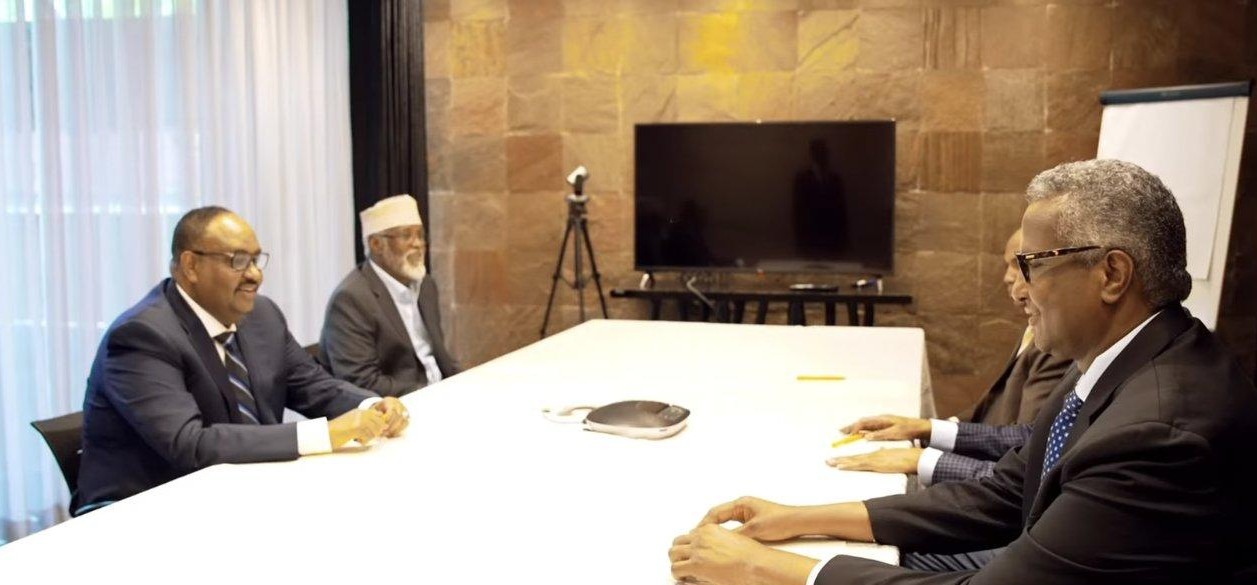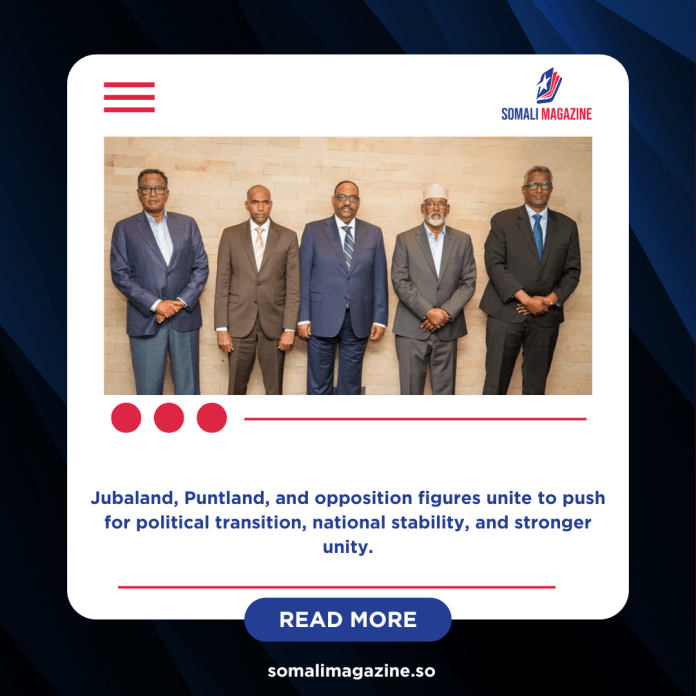Facebook Twitter (X) Instagram Somali Magazine - People's Magazine
Regional leaders from Jubaland and Puntland, together with well-known opposition figures, met in Nairobi on Thursday to discuss Somalia’s political future and growing security concerns. The gathering brought together key figures including Jubaland President Ahmed Mohamed Islam, Puntland President Said Abdullahi Deni, former Prime Ministers Hassan Ali Khayre and Saacid Shirdoon, and Member of Parliament Abdirahman Abdishakur. Their meeting marked an important step in uniting political voices at a time when Somalia faces uncertainty around elections and the broader transition of government.
At the end of their discussions, the leaders announced the creation of a new political alliance called the Somali Future Council. This body brings together the Somali Salvation Forum, a platform for prominent opposition figures, with the regional governments of Jubaland and Puntland. The goal is to provide a united voice and a clear structure to address national challenges while ensuring that Somalia moves towards peace, stability, and inclusive politics.
The Somali Future Council is still in its early stages, and the leaders agreed that the next step will be to hold a larger follow-up conference inside Somalia. That upcoming conference will finalize how the council will be organized and what role it will play in guiding the country through its political transition. By choosing to eventually move their talks into Somalia, the leaders signaled a commitment to addressing national issues directly with citizens on Somali soil, rather than only from meetings abroad.
Beyond political arrangements, the leaders highlighted the importance of unity and stability for the Somali people. They called on all Somalis to protect their national identity and to resist divisions that could weaken the country. They emphasized that safeguarding Somalia’s cohesion is critical, especially during a time when disputes between federal and regional authorities have created tensions and delayed progress on key national matters.
The group also extended gratitude to the Government of Kenya, acknowledging Nairobi’s role in supporting dialogue and providing space for Somali leaders to discuss their future. Kenya has often played host to Somali political negotiations and continues to be an important partner in regional security and development efforts.
The Nairobi meeting comes at a sensitive moment in Somalia’s politics. President Hassan Sheikh Mohamud is preparing to travel to Kismayo for talks with Jubaland officials. Those talks are seen as part of ongoing efforts to end the political deadlock and build consensus around the electoral process. The engagement in Kismayo is expected to focus on resolving disagreements between the Federal Government and Jubaland, which have been obstacles in planning upcoming elections.
For now, the Federal Government of Somalia has not issued an official statement about the Nairobi meeting or its outcomes. However, the creation of the Somali Future Council and the joint pledge by opposition leaders and regional presidents mark a significant shift in the political landscape. It signals that regional states and opposition groups are willing to unite and speak with one voice on issues of governance, security, and Somalia’s democratic transition.
Observers say the developments could either push the country toward greater cooperation or add pressure to existing tensions between the federal government and regional administrations. Whether this new alliance becomes a force for unity or a point of contention will depend on how the follow-up conference is organized and how the federal leadership responds. Still, the leaders’ joint call for unity and stability reflects a shared understanding that Somalia cannot afford more divisions at such a critical time.
As Somalia continues to navigate political uncertainty, the decisions made in Nairobi—and soon inside Somalia—may shape the country’s direction for years to come. The Somali Future Council could emerge as a platform that helps bridge divides, brings leaders together, and supports the goal of a peaceful and democratic Somalia.

